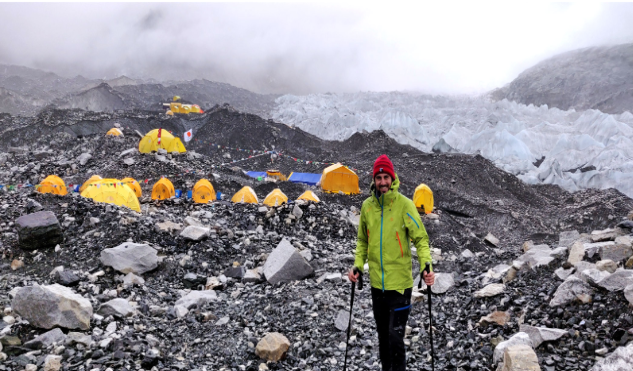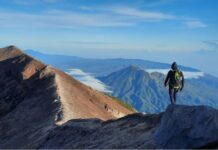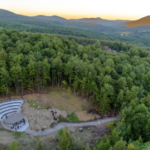The Everest Base Camp (EBC) Trek is one of the most iconic and sought-after trekking routes in the world. It draws adventurers from across the globe to witness the majestic Everest (8,848 meters) and explore the stunning landscapes of the Khumbu region. However, as with any international adventure, it’s essential to have a clear understanding of the Everest Base Camp Trek cost to ensure that you are well-prepared. From permits and transportation to guides, accommodation, and meals, the cost structure for the EBC trek can vary depending on several factors. In this guide, we’ll break down the expenses involved and offer insights into how you can plan your budget for this extraordinary trek.
1. Permits and Fees for Everest Base Camp Trek
To trek to Everest Base Camp, you will need to obtain certain permits. The primary permits required are the Sagarmatha National Park Permit and the TIMS (Trekkers’ Information Management System) Card. These permits help regulate and manage trekkers’ safety and ensure the protection of the environment.
- Sagarmatha National Park Permit: This permit is required to enter the Sagarmatha National Park, which encompasses Everest Base Camp. The cost is approximately $30 USD for foreign nationals.
- TIMS Card (Trekkers’ Information Management System): This card ensures that trekkers are registered and tracked for safety. It costs about $20 USD.
- Khumbu Rural Municipality Entrance Permit: A newer requirement, this permit costs $20 USD and is collected at the entrance to the Everest region.
2. Guides and Porters for the Trek
Hiring a guide or a porter is highly recommended for the EBC trek, especially for first-time trekkers. Not only does a guide help you navigate the trail, but they also offer insights into the culture and local traditions of the Sherpas. Porters, on the other hand, can carry your heavy backpack, allowing you to trek more comfortably.
- Guide Fee: The cost of hiring a guide for the Everest Base Camp Trek generally ranges from $25 to $35 USD per day. Guides are knowledgeable about the route, and many can speak English, ensuring communication is smooth.
- Porter Fee: A porter typically costs $20 to $25 USD per day. Porters usually carry around 15-20 kg of gear, and hiring one is an excellent way to ensure your trek is more comfortable, especially at higher altitudes.
3. Accommodation and Meals
During the Everest Base Camp Trek, accommodation and meals will be provided by teahouses, small lodges that serve as the main accommodation along the trail. The quality of the teahouses will vary depending on the altitude.
- Accommodation: The cost of a teahouse room typically ranges from $5 to $10 USD per night. In higher-altitude areas (above 3,500 meters), the price may increase slightly due to the remote nature of the location.
- Meals: Food prices also vary along the trek. A typical meal (such as dal bhat, noodles, or a sandwich) can cost between $5 to $10 USD. Meals are generally more expensive at higher altitudes, with costs climbing up to $15 to $20 USD per dish in places like Gorak Shep or Lobuche.
- Drinks and Snacks: Bottled water is essential during the trek, with prices ranging from $1 to $5 USD per bottle depending on the altitude. Other drinks like tea or coffee will cost about $2 to $4 USD.
4. Flights and Transportation
To get to the Everest region, you’ll need to take a flight from Kathmandu to Lukla, the gateway to the Everest trek. The flight is one of the most thrilling experiences of the trek, as it takes you through the breathtaking mountain ranges to Lukla’s small airport.
- Kathmandu to Lukla Flight: A round-trip flight from Kathmandu to Lukla generally costs between $150 to $200 USD. Keep in mind that flights to Lukla are often delayed or canceled due to weather conditions, so you should allow a buffer day in Kathmandu before your trek.
- Transportation in Kathmandu: To get from your hotel to the domestic airport or the bus station, you may need to pay for taxis or private transportation. Taxi fares typically range from $5 to $10 USD within Kathmandu.
5. Additional Expenses
There are a few other expenses to consider when budgeting for the Everest Base Camp Trek:
- Travel Insurance: Trekking at high altitudes requires comprehensive travel insurance. Policies that cover emergency evacuation, flight delays, and health-related issues generally cost between $50 to $150 USD for the duration of the trek.
- Wi-Fi and Charging: Many teahouses along the trail offer Wi-Fi and charging facilities, but they usually charge a fee. Expect to pay about $2 to $5 USD per hour for Wi-Fi or to charge your devices.
- Snacks and Water: Keep in mind that the higher you go, the more expensive snacks (like chocolate bars or nuts) and bottled water will become. Budget an extra $2 to $5 USD per day for these small purchases.
6. Total Estimated Cost
For a 12-day Everest Base Camp trek, here’s an approximate breakdown of the total cost:
- Permits: $70 to $80 USD
- Guide and Porter Fees: $400 to $700 USD (depending on the number of days and whether you hire both a guide and a porter)
- Accommodation and Meals: $300 to $500 USD
- Flights (Kathmandu-Lukla-Kathmandu): $300 to $400 USD
- Miscellaneous Expenses (insurance, snacks, water, Wi-Fi): $100 to $200 USD
Total Estimated Cost: $1,200 to $1,800 USD
Conclusion
The Everest Base Camp Trek is a once-in-a-lifetime experience, and the cost of the trek depends on several factors, including permits, transportation, accommodation, meals, and personal preferences. On average, you can expect to spend around $1,200 to $1,800 USD for a 12-day trek. It’s crucial to plan ahead and allocate a budget that covers all expenses to ensure a smooth and memorable trek to Everest Base Camp.
While the cost of the trek can be substantial, the experience of walking in the shadow of Mount Everest, exploring Sherpa villages, and witnessing the incredible mountain scenery is priceless. With proper planning and preparation, you can embark on this adventure without breaking the bank.
FAQs about Everest Base Camp Trek Cost
- Is the Everest Base Camp Trek expensive? The Everest Base Camp Trek can be considered moderately expensive due to the costs of permits, flights, and accommodation in remote areas. However, it is cheaper than some other high-altitude treks like Annapurna or the Manaslu Circuit.
- Can I do the Everest Base Camp Trek on a budget? Yes, you can reduce costs by opting for budget accommodations, eating local meals, and traveling with a group. However, keep in mind that safety and comfort should still be a priority.
- Is it necessary to hire a guide and porter for the EBC trek? It’s not mandatory, but hiring a guide or porter can significantly enhance your experience, particularly for first-time trekkers. A guide will assist with navigation, and a porter will help carry your gear.
- Do I need to purchase travel insurance for the trek? Yes, travel insurance is highly recommended. It should cover high-altitude trekking, emergency evacuation, and other medical emergencies to ensure your safety.
- When is the best time to trek to Everest Base Camp? The best times to trek are during the spring (March-May) and autumn (September-November) months when the weather is stable and the trails are less crowded.










